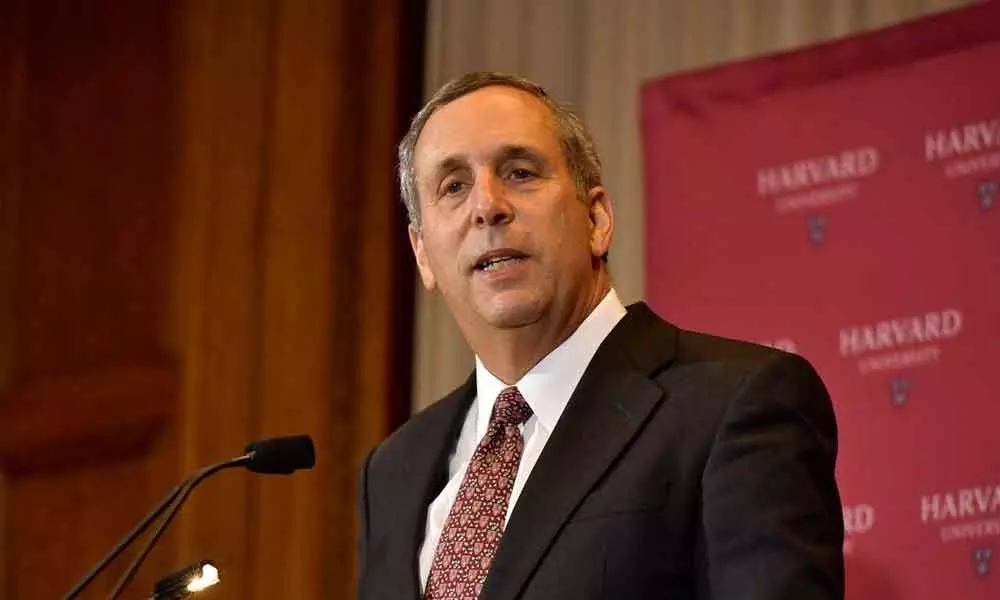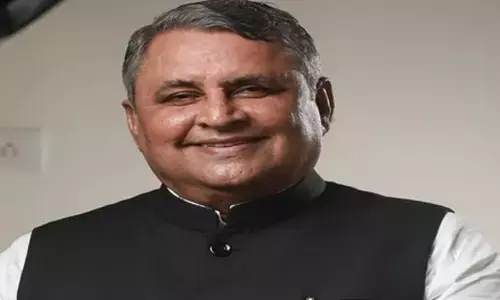Indian students in US face deportation if classes go online

Harvard University President Larry Bacow expressed deep concern and said the new guidance issued imposed a "blunt, one-size-fits-all approach to a complex problem giving international students few options beyond leaving the country or transferring schools."
In a move that will adversely impact hundreds of thousands of Indian students, the US immigration authority has announced that foreign students will have to leave the country or risk deportation if their universities switch to online-only classes in this fall semester due to the coronavirus pandemic
Washington/ New York : In a move that will adversely impact hundreds of thousands of Indian students, the US immigration authority has announced that foreign students will have to leave the country or risk deportation if their universities switch to online-only classes in this fall semester due to the coronavirus pandemic.
The Immigration and Customs Enforcement (ICE) said in a press release on Monday that for the fall 2020 semester students attending schools operating entirely online may not take a full online course load and remain in the US.
"The US Department of State will not issue visas to students enrolled in schools and/or programmes that are fully online for the fall semester nor will US Customs and Border Protection permit these students to enter the United States," the release said referring to the September to December semester.
The agency suggested that students currently enrolled in the US consider other measures, like transferring to schools with in-person instruction. International students enrolled in academic programmes at US universities and colleges study on an F-1 visa and those enrolled in technical programmes at vocational or other recognised non-academic institutions, other than a language training programme come to the US on an M-1 visa.
India sent the largest number of students (251,290) to the US after China (478,732) in 2017 and 2018, according to the latest Student and Exchange Visitor Program (SEVP) 'SEVIS by the Numbers Report' 2018. The number of students from India increased from 2017 to 2018 by 4,157.
The immigration agency said that the active students currently in the US enrolled in such programmes "must depart the country or take other measures, such as transferring to a school with in-person instruction to remain in lawful status or potentially face immigration consequences including, but not limited to, the initiation of removal proceedings."
Spelling out the criteria for international students to stay in the US, the ICE said that students attending schools operating under normal in-person classes are bound by existing federal regulations.
"Eligible F students may take a maximum of one class or three credit hours online," it said. Nonimmigrant F-1 students attending schools adopting a hybrid model—that is, a mixture of online and in-person classes— will be allowed to take more than one class or three credit hours online, it said.
These schools must certify to the Student and Exchange Visitor Programme that the course is not entirely online, that the student is not taking an entirely online course load for the fall 2020 semester, and that the student is taking the minimum number of online classes required to make normal progress in their degree programme.
The above exemptions do not apply to F-1 students in English language training programs or M-1 students pursuing vocational degrees, who are not permitted to enrol in any online courses, the ICE said.
The guidance is certain to cause severe anxiety and uncertainty for the hundreds of thousands of international students who are studying in the country and for those who were preparing to arrive in the US to begin their education when the new academic session begins in September.




